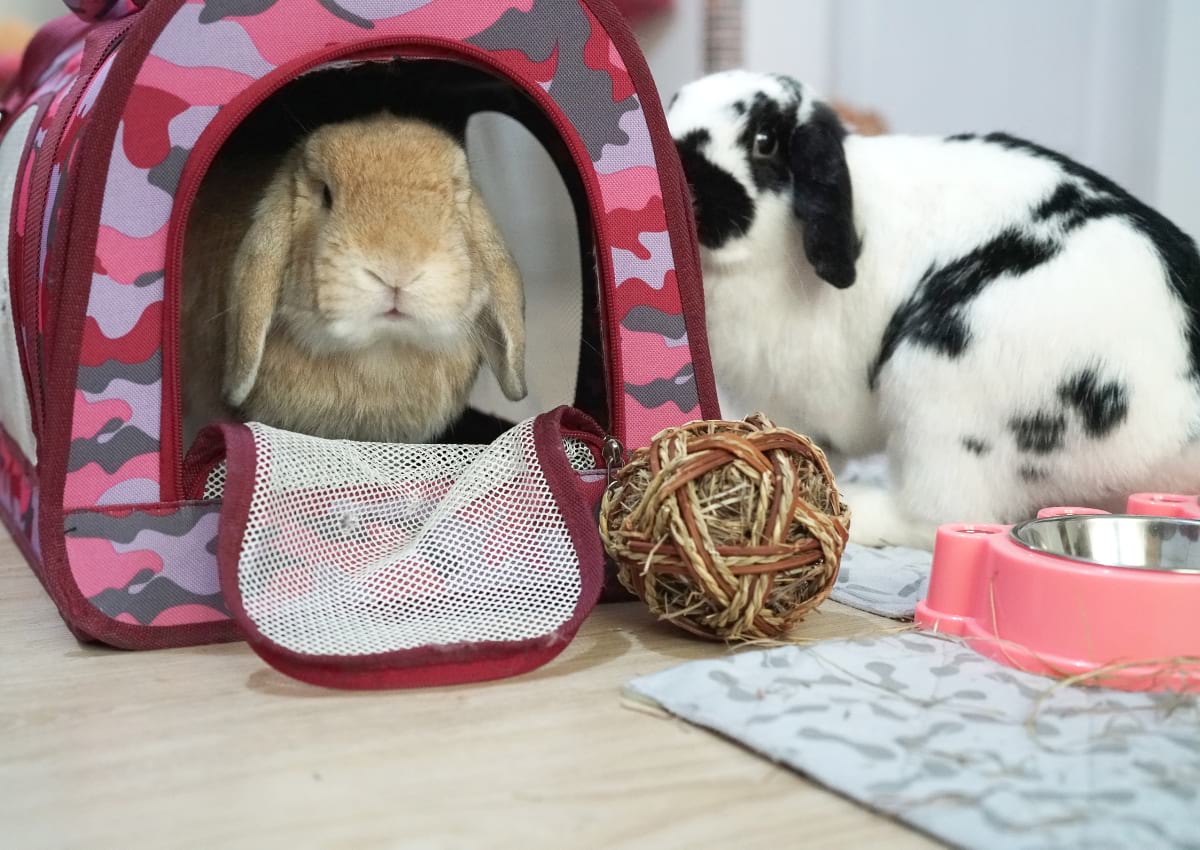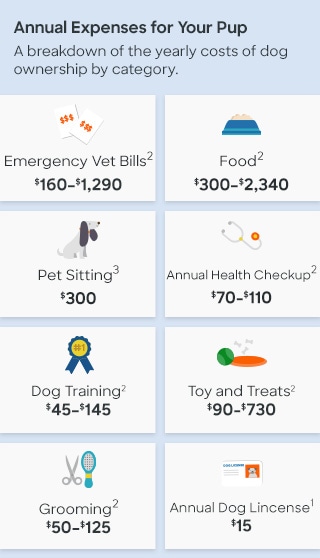Owning a pet brings joy and companionship. But, it comes with costs.
For many, pets become family members. Their love is priceless, but their care has a price. From food and grooming to vet visits and supplies, these costs add up. Understanding these expenses helps in planning and ensures a happy, healthy life for your pet.
This guide provides a clear picture of all costs involved in owning a pet. You’ll know what to expect financially and be better prepared for pet ownership. Dive in to get a complete breakdown of the costs. This knowledge will help you make informed decisions.
Also Read
Initial Costs
Owning a pet can bring immense joy and companionship, but it’s essential to understand the initial costs involved. These initial expenses can add up quickly, so it’s important to budget accordingly. Below, we break down the primary initial costs of owning a pet, focusing on adoption fees and initial supplies.
Adoption Fees
Adoption fees vary based on the type of pet and the adoption center. These fees often cover vaccinations, spaying or neutering, and a health check. Here’s a rough estimate of typical adoption fees:
| Pet Type | Adoption Fee Range |
|---|---|
| Dog | $50 – $300 |
| Cat | $20 – $150 |
| Small Animals (e.g., rabbits, guinea pigs) | $10 – $50 |
Adopting from a shelter or rescue group is often less expensive than buying from a breeder. Plus, it helps save a life.
Initial Supplies
Once you’ve adopted your pet, you’ll need to purchase essential supplies to ensure their comfort and well-being. Here’s a list of the most common initial supplies:
- Food and Water Bowls: Stainless steel or ceramic bowls are durable and easy to clean.
- Pet Bed: Choose a comfortable bed suited to your pet’s size.
- Collar and Leash: Essential for dogs and some cats, ensuring safety during walks.
- Litter Box and Litter: Necessary for indoor cats to maintain hygiene.
- Toys: Important for mental stimulation and physical exercise.
- Crate or Carrier: Useful for travel and providing a safe space for your pet.
Here is a rough estimate of the cost for these initial supplies:
| Supply | Cost Range |
|---|---|
| Food and Water Bowls | $10 – $30 |
| Pet Bed | $20 – $100 |
| Collar and Leash | $15 – $50 |
| Litter Box and Litter | $25 – $75 |
| Toys | $10 – $50 |
| Crate or Carrier | $30 – $100 |
These initial costs are essential investments to ensure your pet’s health and happiness. Plan your budget accordingly to provide the best care for your new companion.
Monthly Expenses
Owning a pet comes with various monthly expenses. These costs add up quickly. Being aware of these expenses helps in budgeting effectively. Here’s a breakdown of the monthly costs.
Food And Treats
Pets need a balanced diet. Quality pet food is essential. The type of pet you have affects this cost. Larger pets consume more food. Small pets eat less. Treats are also part of the budget. These keep pets happy and healthy. Budgeting for both food and treats is important.
Healthcare And Insurance
Regular vet check-ups are necessary. These check-ups catch health issues early. Vaccinations are also a part of monthly expenses. Some pets need medication. This adds to the cost. Pet insurance can help manage these expenses. Insurance covers emergencies and regular visits. Choosing the right insurance plan is crucial.
Routine Healthcare
Owning a pet brings joy and companionship. Yet, it also comes with responsibilities. Routine healthcare is vital for your pet’s well-being. Regular check-ups, vaccinations, and medications keep your pet healthy. They also prevent serious health issues. Here’s a breakdown of the costs involved in routine healthcare for your pet.
Vet Visits
Regular vet visits are essential. Annual check-ups help monitor your pet’s health. They can catch early signs of illness. These visits often include physical exams. The cost can range from $45 to $75 per visit. Some pets may need more frequent visits. This is especially true for older pets or those with health issues.
Vaccinations And Medications
Vaccinations protect your pet from diseases. Core vaccines are necessary for all pets. Optional vaccines depend on your pet’s lifestyle. Vaccination costs vary. They usually range from $20 to $50 per shot. Medications are also important. They treat and prevent illnesses. Common medications include flea, tick, and heartworm preventatives. Monthly costs for these can range from $10 to $30.
Grooming Needs
Owning a pet means more than just feeding and playing. Grooming is a crucial part of pet care. It keeps your pet healthy and looking their best. Let’s explore the costs and needs of grooming your pet.
Professional Grooming
Professional grooming can be a big expense. Many pet owners choose this option for convenience. Groomers offer services like bathing, nail trimming, and haircuts. The cost can vary based on your pet’s size and breed.
Small dogs may cost less. Large dogs and long-haired breeds often cost more. Regular grooming appointments are necessary. Some pets may need grooming every 4 to 6 weeks. This can add up quickly over a year.
At-home Grooming Supplies
At-home grooming can save money. You need to invest in the right supplies. Basic tools include a brush, nail clippers, and pet shampoo. These items may cost less than professional grooming sessions.
You can also find grooming kits. These kits often include all necessary tools. Regular brushing at home can reduce shedding. It can also prevent mats and tangles. Consistent at-home care keeps your pet looking great.
Training And Behavior
Training and behavior are crucial aspects of pet ownership. Proper training ensures your pet is well-behaved and safe. Investing in training and behavior tools can enhance your pet’s quality of life and your bond with them.
Obedience Classes
Obedience classes are essential for teaching your pet basic commands and good manners. These classes typically range from $30 to $80 per session. Group classes are more affordable than private sessions. Group classes also offer socialization opportunities for your pet.
| Type of Class | Cost Range |
|---|---|
| Group Classes | $30 – $50 per session |
| Private Sessions | $60 – $80 per session |
Consider the benefits of each type of class. Group classes help with socialization. Private sessions offer personalized attention.
Behavioral Tools
Behavioral tools help manage and correct undesirable behaviors. Tools like clickers, chew toys, and training collars are common. The cost of these tools varies based on quality and brand.
- Clickers: $5 – $10
- Chew Toys: $5 – $20
- Training Collars: $20 – $100
Investing in high-quality tools can save money in the long run. Cheap tools may break easily and need frequent replacement.
Training and behavior management are ongoing investments. They ensure a happy, well-behaved pet.

Credit: www.animallama.com
Pet Accessories
Owning a pet brings joy and companionship, but it also requires an investment in various accessories. These items ensure your pet’s happiness and comfort. Let’s dive into the essential pet accessories you need and their costs.
Toys And Entertainment
Pets need stimulation to stay healthy and happy. Toys provide mental and physical exercise. Chew toys, balls, and interactive puzzles are popular choices. The cost of toys varies. Simple toys might cost $5, while interactive ones can be $30 or more.
Rotating toys regularly keeps pets engaged. Budget for new toys every few months. Remember, quality toys last longer and are safer for your pet.
Bedding And Comfort
A comfortable bed is essential for your pet’s well-being. Pets need a place to relax and feel secure. Pet beds come in various sizes and materials. Basic beds start at $20, while luxury options can exceed $100.
Beds with washable covers are practical. They stay clean and hygienic. Orthopedic beds are great for older pets. They provide extra support and comfort. Investing in good bedding ensures your pet’s restful sleep.
Unexpected Costs
Owning a pet is a joyful experience, but it comes with unexpected costs. These surprise expenses can strain your budget, so it’s crucial to plan ahead. Below, we discuss some common unexpected costs.
Emergency Vet Visits
Emergencies can happen at any time. Your pet might swallow something harmful or get injured. Emergency vet visits can be expensive. They often include consultation fees, diagnostic tests, and treatments.
Costs of Emergency Vet Visits:
- Consultation: $100 – $200
- Diagnostic Tests: $200 – $500
- Treatments: $500 – $2,000
These costs can quickly add up. Having pet insurance can help cover some of these expenses.
Damage And Repairs
Pets can be playful and sometimes destructive. They might chew furniture, scratch floors, or damage walls. Repairing these damages can be costly. Here are some common damages and their repair costs:
| Damage Type | Estimated Cost |
|---|---|
| Chewed Furniture | $100 – $500 |
| Scratched Floors | $300 – $800 |
| Damaged Walls | $200 – $600 |
These repairs can be frequent. Training your pet and providing proper toys can reduce these costs.

Credit: www.discover.com
Long-term Considerations
When considering the cost of owning a pet, long-term expenses can add up. These costs often catch pet owners by surprise. It’s crucial to plan for these future financial needs.
Aging And Senior Care
As pets grow older, their needs change. Medical care becomes more frequent. Older pets may need special diets. Joint supplements and other medications can be expensive. Regular check-ups become essential. Vet visits for senior pets often cost more.
Older pets may also need more comfort. Orthopedic beds and ramps can help. These items ensure they live comfortably. Senior pets often need more attention. This may mean hiring pet sitters or day care. Both come with additional costs.
End-of-life Expenses
End-of-life care is a sensitive topic. It’s also a financial consideration. Euthanasia and cremation services can be costly. Some choose burial services. These can be expensive too. Planning for these expenses can ease the burden. It ensures your pet’s end is handled with dignity.
Some pet owners opt for memorials. These can add to the cost. It’s important to think about these expenses early. This planning helps avoid financial stress. It ensures your pet receives the best care throughout its life.

Credit: hyperjar.com
Frequently Asked Questions
What Are The Initial Costs Of Owning A Pet?
The initial costs include adoption fees, vaccinations, spaying/neutering, and basic supplies. These costs vary by pet type. Dogs and cats usually cost more initially.
How Much Does Pet Food Cost Monthly?
Pet food costs vary by pet size and type. On average, expect to spend $20-$60 monthly on pet food. Premium brands cost more.
Are There Any Unexpected Pet Expenses?
Unexpected expenses include emergency vet visits, illnesses, and accidents. It’s wise to have an emergency fund or pet insurance. These costs can be significant.
How Often Do Pets Need Veterinary Care?
Pets need annual check-ups and vaccinations. Routine visits ensure your pet stays healthy. Some pets may require more frequent visits.
Conclusion
Owning a pet brings joy and responsibility. Costs add up quickly. Food, vet visits, grooming, and toys need budgeting. Plan well before bringing a pet home. Understand the financial commitment. Pets need time and attention too. They become family members.
A well-cared-for pet leads to a happy home. Make informed decisions. Love and care matter most. Enjoy the journey of pet ownership.



